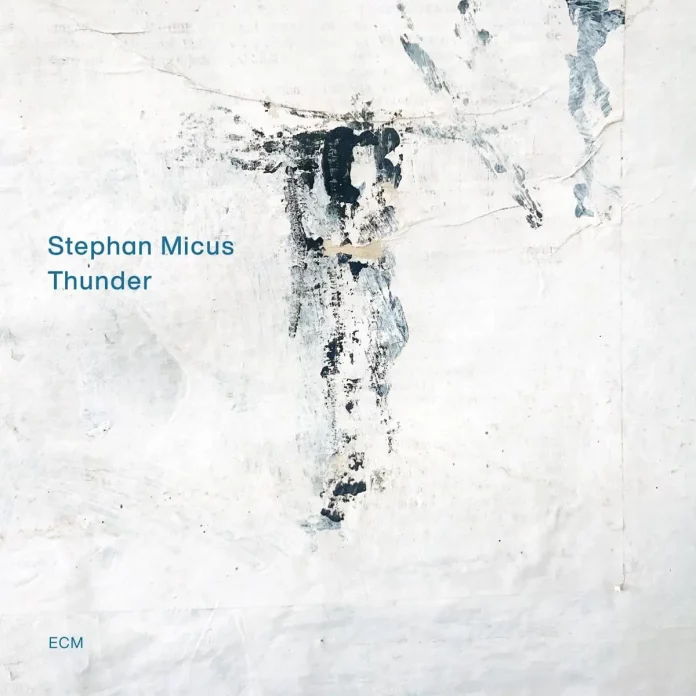Stephan Micus’s 25th solo album for ECM is a tribute and an offering to nine thunder gods from around the world. But his original inspiration was not a god but an instrument, the dung chen trumpet, used in Tibetan monastic ceremonies, that he discovered during his travels in the region. It is usually only taught to monks, making Micus possibly the first non-Tibetan to learn and play this extraordinary horn.
This long trumpet is normally used to play just the low drone notes heard behind the most significant and profound Buddhist ceremonies, but here Micus uses it to produce agile horn calls that form the centrepiece of the album, playing the opening, centre and closing pieces like a repeated pattern in a mandala.
On this album it is paired with the Siberian ki un ki, a two-meter-long stalk through which the musician inhales rather than blows., and the Japanese nakhan or short, side-blown flute. These three instruments are part of a 15-strong ensemble that Micus deploys; I have identified their national or regional origins in the discography for your education.
As ever, Micus plays every instrument heard on this set, overdubbing and layering their sounds. What results is certainly atmospheric, the subtle shakuhachi five-hole flute from Japan on A Song For Raijin and the bowed sarangi from India on A Song For Armazi particularly effective. Interestingly, it is the more reflective pieces that work best, quietly addressing the gods in the hope they may be pacified rather than upset. Overdubbed chanting adds to the intensity of feeling, the slow pace of most tracks giving the differing instruments plenty of time to breathe.
Yet despite its undoubted strengths, I must admit to finding something troubling about this set. Micus is now 70, which partly explains why it all sounds a tad dated. More importantly, musical voyages in search of new sounds and new instruments so popular in the 1960s and 1970s now come across as misconceived musical misappropriations and exploitations. Many will love this set for its honesty and devotion, but it leaves me cold.
Discography
A Song For Thor; A Song For Raijin; A Song For Armazi; A Song For Shango; A Song For Vajrapani; A Song For Leigong; A Song For Zeus; A Song For Ihskur; A Song For Perun (51.40)
Micus (Tibetan dung chen trumpet, Japanese nokhan and shakuhachi flutes, Siberian ki un ki stalk, Indian sarangi stringed instrument, Swedish nyckelharpa keyed fiddle, Namibian San kaukas harp, West African sinding harp, Borneo sapeh lute, bass zither, Burmese temple bells, Himalayan horse bells, Burmese kyeezee gong, South American storm drum, frame drum, v). Pittsburgh, 2020–22.
ECM Records 4841937
















